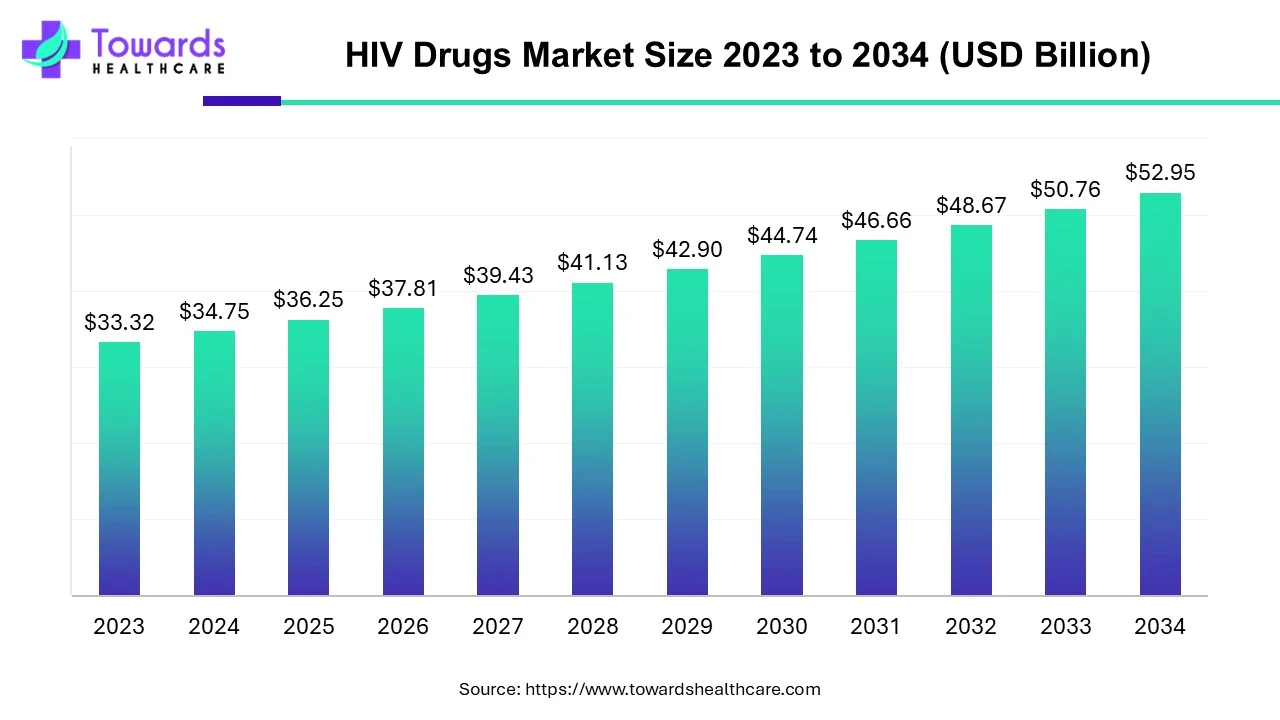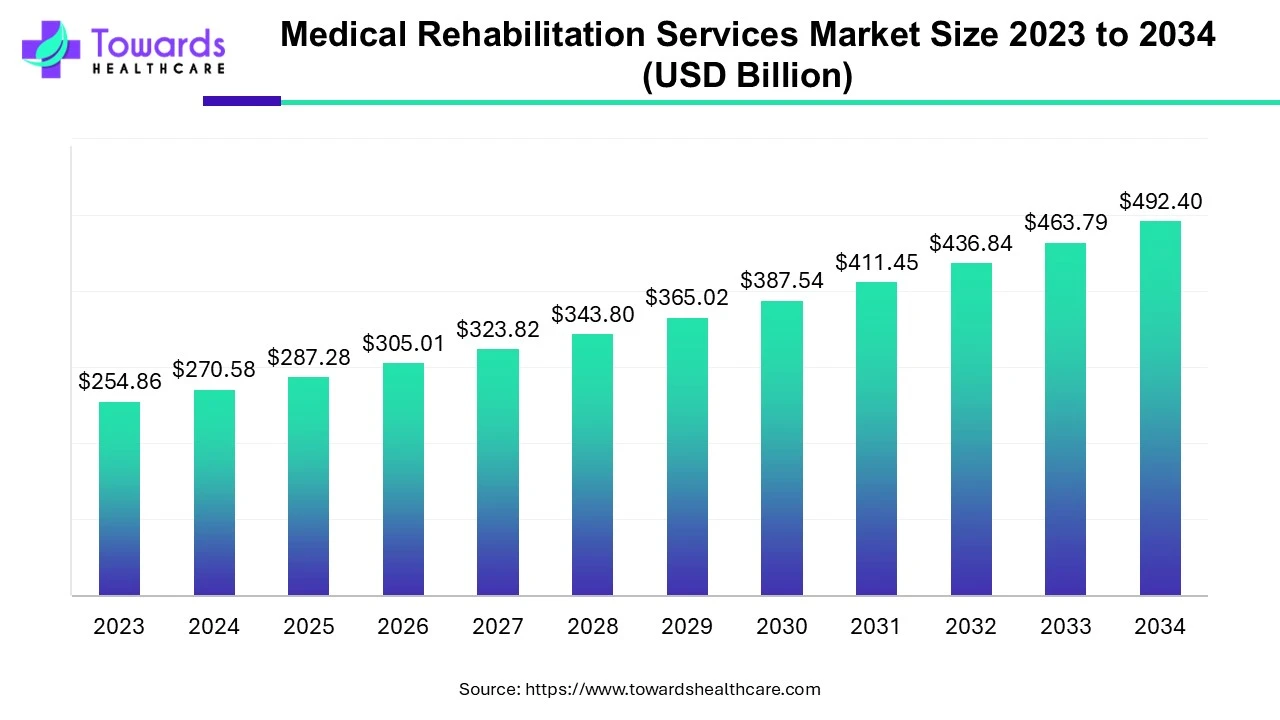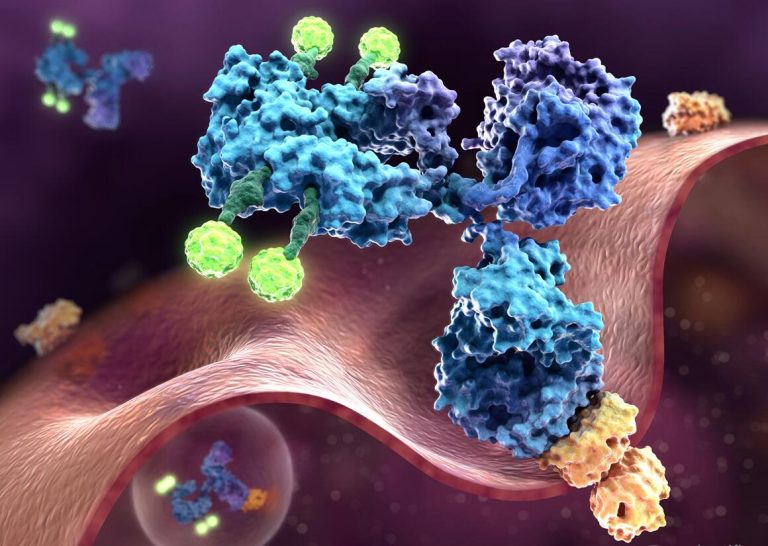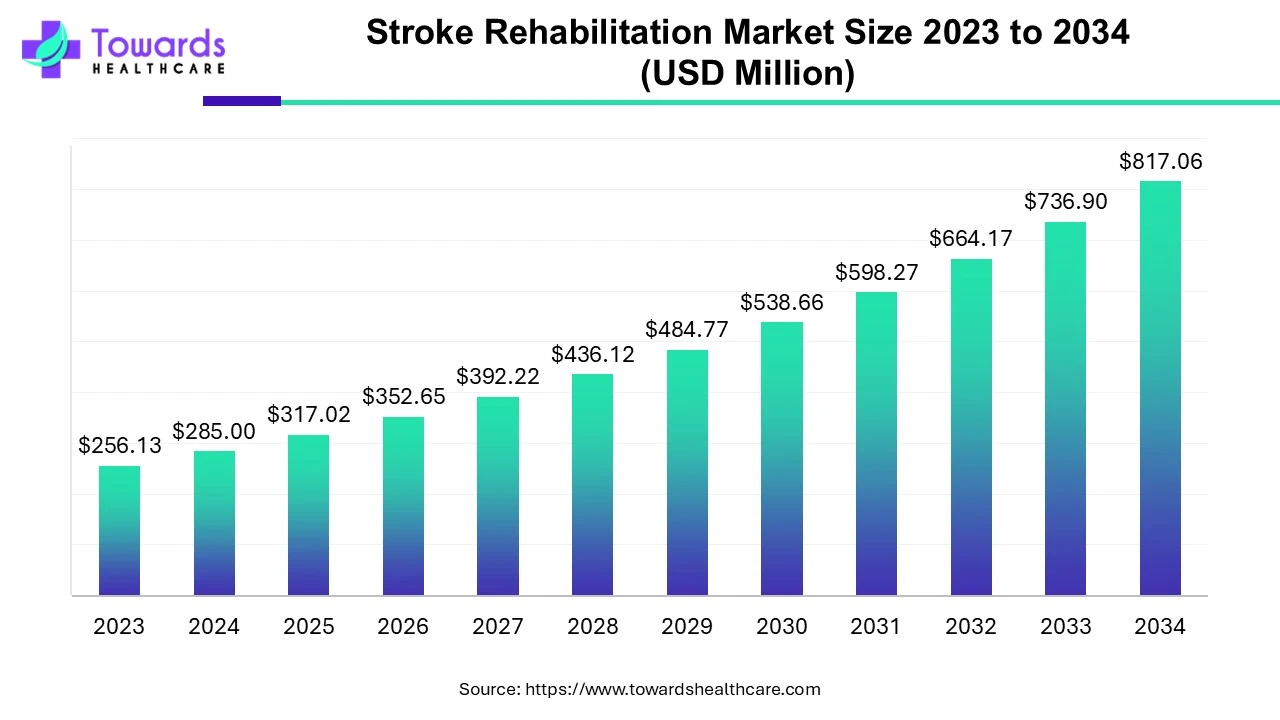
Download statistics of this report @ https://www.towardshealthcare.com/download-statistics/5131
Report Highlights:
- Combination-class drugs dominated the market in 2023 with 60% market share.
- Hospital pharmacies lead the market with 50% market in 2023.
- North America took the charge in HIV drugs market in 2023.
In 2022, about 630,000 individuals died from HIV-related causes, as reported by the World Health Organization. This shows we need better treatments to fight HIV.
HIV (Human Immunodeficiency Virus) weakens the body’s immune system, making it vulnerable to infections and diseases. It is mainly transmitted through sharing needles or syringes, unprotected sexual contact, and from mother to child during childbirth or breastfeeding.
Symptoms of HIV can vary and may not always be apparent. Some people may experience flu-like symptoms such as fever, headache, fatigue, and swollen lymph nodes in the early stages. As the virus progresses, symptoms may become more severe, including recurrent infections, rapid weight loss, night sweats, and chronic diarrhea.
Early diagnosis of HIV is crucial because it allows for timely medical intervention and treatment. When HIV is diagnosed early, individuals can start antiretroviral therapy (ART) promptly. ART helps to suppress the virus, allowing the immune system to recover and preventing the progression of HIV to AIDS (Acquired Immunodeficiency Syndrome). Without treatment, HIV can lead to AIDS, a condition characterized by severe immune system damage and an increased risk of opportunistic infections and certain cancers. However, with proper medical care and treatment, people living with HIV can lead long and healthy lives.
The Growing HIV Population Necessitates Greater Access to Treatment for Improved Longevity and Well-Being
In 2021, the United States saw an estimated 32,100 new HIV infections, reflecting a 12% decrease from 2017, which recorded 36,500 new cases. Additionally, 36,136 individuals were diagnosed with HIV across the U.S. and its six dependent areas in 2021. The global prevalence of HIV/AIDS significantly impacts the demand for treatments, particularly antiretroviral therapy (ART). As the number of individuals living with HIV rises, so does the necessity for these medications to effectively manage the virus and support the health of those affected.
According to the World Health Organization in 2022, approximately 39 million people globally were living with HIV, including 1.5 million children aged 0-14. That year, nearly 630,000 people died from HIV-related causes, while about 29.8 million were receiving antiretroviral therapy. Furthermore, 86% of those diagnosed were aware of their status, 76% were on treatment, and 71% had achieved viral load suppression. These statistics underscore the pressing need for enhanced drug delivery systems for HIV treatment.
With an increasing number of individuals living with HIV, expanded access to treatment is essential for fostering longer, healthier lives. Effective medications not only improve individual health outcomes but also contribute to slowing the virus’s spread within communities. Widespread availability of HIV treatments can reduce stigma, encouraging more people to seek testing and treatment, leading to earlier diagnoses and better health outcomes.
Moreover, when more individuals receive treatment, the risk of HIV transmission diminishes. Antiretroviral medications can significantly lower the viral load in an infected person, reducing the likelihood of passing the virus to others. As the HIV population grows, ensuring that these critical medications are accessible to all who need them is vital for controlling the virus’s spread and enhancing the health and well-being of individuals and communities worldwide.
Progress in HIV Treatment is Improving Outcomes for Those Affected
Researchers are continually striving to enhance HIV treatment through innovative solutions. Ongoing studies aim to develop new and improved medications that more effectively combat the virus and promote the health of individuals living with HIV.
For example:
- In April 2021, IAVI and Scripps Research announced the successful completion of a Phase I clinical trial for a novel HIV vaccine.
- In December 2021, ViiV Healthcare introduced Apretude, an FDA-approved long-acting injectable treatment designed to prevent sexually acquired HIV-1 infection.
One avenue of progress involves the development of advanced drug delivery systems that enhance the effectiveness of medication administration. For instance, some treatments are being formulated as long-acting injections, which require administration only once a month instead of daily.
Recent Developments in HIV Treatment
In June 2022, Cipla Ltd. and its partner, the Drugs for Neglected Diseases Initiative (DNDi), announced the launch of a new pediatric HIV medication combining four drugs into one formulation. This product has been approved by the South African Health Products Regulatory Authority (SAHPRA) and is specifically tailored for infants and young children with HIV.
In July 2023, CRISPR Technologies reported that EBT-101 received Fast Track Designation from the FDA, marking it as the first CRISPR-based therapy for HIV to obtain Investigational New Drug (IND) clearance.
Combination therapies represent another significant advancement in HIV treatment. By utilizing multiple drugs simultaneously, healthcare providers can attack the virus from various angles, enhancing treatment efficacy and minimizing the risk of drug resistance. Furthermore, long-acting formulations are changing the landscape of HIV treatment by reducing the frequency of doses, making it easier for patients to adhere to their treatment regimens.
These advancements in HIV treatment are leading to improved health outcomes for those living with the virus. They facilitate better medication adherence and promote effective viral suppression. As research continues to evolve, we can anticipate further progress in the ongoing fight against HIV/AIDS.
Enhancing Patient Care Through Combination Therapy
Combination therapy has played a crucial role in advancing HIV treatment and expanding the market for these medications. Instead of relying on a single drug, healthcare providers now commonly employ a combination of medications to combat HIV. This multifaceted approach is the standard of care, as it is more effective in halting the virus’s progression and preventing resistance to treatment.
Discover our detailed Table of Contents (TOC) for the Industry, providing a thorough examination of market segments, material, emerging technologies and key trends. Our TOC offers a structured analysis of market dynamics, emerging innovations, and regional dynamics to guide your strategic decisions in this rapidly evolving healthcare field – https://www.towardshealthcare.com/table-of-content/hiv-drugs-market-sizing
To own our research study instantly, Click here @ https://www.towardshealthcare.com/price/5131
You can place an order or ask any questions, please feel free to contact us at sales@towardshealthcare.com
About Us
Towards Healthcare is a leading global provider of technological solutions, clinical research services, and advanced analytics to the healthcare sector, committed to forming creative connections that result in actionable insights and creative innovations. We are a global strategy consulting firm that assists business leaders in gaining a competitive edge and accelerating growth. We are a provider of technological solutions, clinical research services, and advanced analytics to the healthcare sector, committed to forming creative connections that result in actionable insights and creative innovations.
Explore the comprehensive statistics and insights on healthcare industry data and its associated segmentation: Get a Subscription
For Latest Update Follow Us: https://www.linkedin.com/company/towards-healthcare


